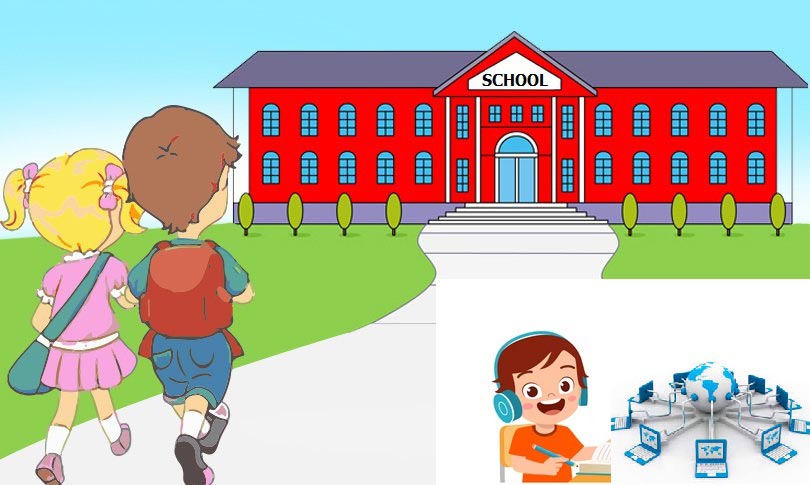
The education sector of Gandaki Province has significantly deteriorated. Student numbers in public schools have dropped sharply, and the situation of government schools has weakened, while there has been some improvement in the private sector.
Decrease in Public Schools and Students
According to an economic study conducted by Nepal Rastra Bank, Pokhara, the number of students in government schools has decreased by nearly 10 percent, although attraction towards technical education has increased to some extent.
As per the report, in the review year 2081/82, the number of government/community schools across the province decreased by 1.93 percent. Within a single year, the total number of such schools declined from 3,310 to 3,246.
Similarly, the number of students fell from 382,955 to 347,104. The number of teachers in government schools also decreased from 24,249 to 22,748. This means that 6.19 percent of teachers left the profession within a single year.
Private Schools: Fewer Schools but More Students
In the institutional (private) sector, the situation is not as discouraging as in government schools. Some improvement has been observed. Although the number of schools has decreased slightly, the numbers of students and teachers have increased noticeably.
Within one year, five private schools were closed. The total number of institutional schools fell from 725 to 720.
However, the number of students increased by 3.22 percent. In fiscal year 2080/81, 206,754 students were studying in private schools, which increased to 213,417 in the latest year.
The number of teachers also rose from 9,630 to 9,713.
Growth in Technical Schools
In the technical education stream, the number of institutions increased from 72 to 75. Student numbers also rose from 3,785 to 4,080.
Similarly, the number of teachers in technical institutions increased from 558 to 587.
Campuses and Universities in a Worrying State
However, the situation of universities and campuses is described as worrying. The trend of campuses closing every year is on the rise, and student numbers have been falling in a discouraging manner.
Within the province, two campuses closed in a single year. The total number of campuses decreased from 64 to 62.
Student enrolment fell from 49,196 to 46,585 within the same year. In contrast, the number of teachers continued to increase. The number of teachers, previously 2,637, rose to 2,672.
The decline in student numbers at universities is attributed to the trend of students going abroad for higher studies after completing Grade 12, as well as people leaving the country for employment.
Teacher–Student Ratios and Emerging Preferences
Analysis of the report reveals an interesting aspect. In government schools, there are around 15 students per teacher. On average, one public school teaches about 107 students.
In private schools, there are about 22 students per teacher, and each school has around 300 students on average. Despite teaching a larger number of students with fewer teachers, private schools have been maintaining relatively better outcomes, while results and quality in government schools have been declining year after year.
At the same time, those who choose to pursue higher education within the country are increasingly opting for technical subjects.
Key Statistics
| Sector / Level | Type | Metric | Before | After | Notes / Period |
|---|---|---|---|---|---|
| Government / Community | Schools | Number of schools | 3,310 | 3,246 | Decrease of 1.93% in 2081/82 |
| Government / Community | Students | Number of students | 382,955 | 347,104 | Student numbers decreased |
| Government / Community | Teachers | Number of teachers | 24,249 | 22,748 | 6.19% teachers left profession in 1 year |
| Government / Community | Schools | Share with student decline | – | – | Nearly 10% schools saw student decline |
| Private (Institutional) | Schools | Number of schools | 725 | 720 | 5 private schools closed in 1 year |
| Private (Institutional) | Students | Number of students | 206,754 | 213,417 | 3.22% increase; 2080/81 → 2081/82 |
| Private (Institutional) | Teachers | Number of teachers | 9,630 | 9,713 | Teachers increased |
| Technical Education | Schools | Number of schools | 72 | 75 | Institutions increased |
| Technical Education | Students | Number of students | 3,785 | 4,080 | Students increased |
| Technical Education | Teachers | Number of teachers | 558 | 587 | Teachers increased |
| Universities / Campuses | Campuses | Number of campuses | 64 | 62 | 2 campuses closed in 1 year |
| Universities / Campuses | Students | Number of students | 49,196 | 46,585 | Student numbers decreased |
| Universities / Campuses | Teachers | Number of teachers | 2,637 | 2,672 | Teachers increased |
| Government Schools | Teacher–student ratio | Students per teacher | – | ~15 | Approximate ratio |
| Government Schools | School–student ratio | Students per school | – | ~107 | Approximate average |
| Private Schools | Teacher–student ratio | Students per teacher | – | ~22 | Approximate ratio |
| Private Schools | School–student ratio | Students per school | – | ~300 | Approximate average |
Gandaki Pradesh


